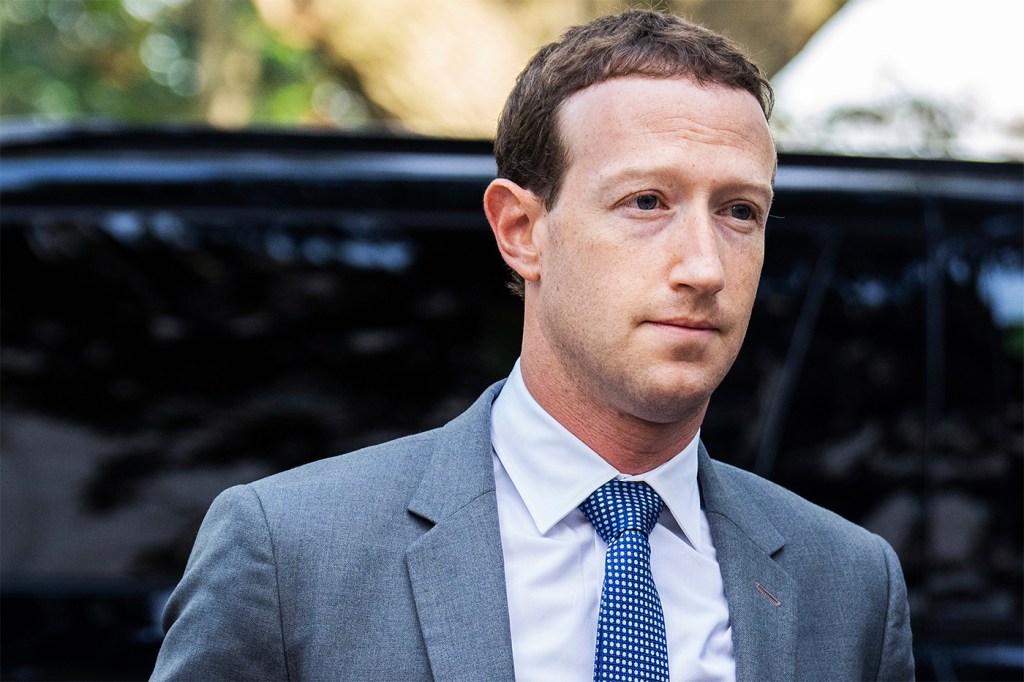Why Meta could struggle to defend itself against 41 states (and D.C.) suing over Facebook, Instagram’s alleged harm to kids

In what could be a landmark moment in the world of tech, attorneys general in 41 states and Washington, D.C., are suing Meta for knowingly endangering children and getting them addicted to Facebook and Instagram, despite statements to the contrary.
Colorado and California are leading the charge with a joint lawsuit that includes 33 other states. They allege that Meta “harnessed powerful and unprecedented technologies to entice, engage, and ultimately ensnare youth and teens,” according to the lawsuit. The District of Columbia and eight other states have filed separate lawsuits against the company.

The lawsuits from dozens of attorneys general claiming that Meta violated consumer protections laws evoke the kind of landmark legal actions taken against Big Tobacco and Big Pharma, says Hilary Robinson, associate professor of law and sociology at Northeastern University. If successful, these cases could be transformative for how tech companies are held accountable for consumer protection.
“It seems to me that the time is right for harnessing state power,” Robinson says. “This is just another attempt to figure out how to use it in an effective way that doesn’t destroy the benefits for people who use these things but reins in these really negative externalities that have had really serious consequences for individual families.”
It’s a big “if,” but Robinson says the attorneys general are “likely to succeed if they’re able to find in discovery the kinds of things that in the opioid lawsuit they were able to find, like clear knowledge of harm.”
Meta has already provided a lot of that evidence itself in some ways, Robinson says.
In 2021, a massive internal leak led to an investigative series from the Wall Street Journal, called “The Facebook Files.” Documents obtained by the Journal laid out how Facebook was both aware of the negative impact its platform could have on people, including teenage girls, and actively looking at ways of attracting young people.
Then, there is an infamous 2014 study published by Facebook in the Proceedings of the National Academy of Sciences. The study, conducted on 700,000 users without their permission, showed evidence of mass-scale “emotional contagion” through the platform. Emotional contagion is the spontaneous spread of emotions between people.
This is just another attempt to figure out how to use it in an effective way that doesn’t destroy the benefits for people who use these things.
Hilary Robinson, associate professor of law and sociology at Northeastern
“Meta is going to have a hard time defending against this one because they published that study,” Robinson says. “It’s clear that they looked at their user population as a group whose behavior they are interested in and they can influence.”
The negative effect social media platforms like Facebook and Instagram have on children and adolescents has been extensively documented, including by Rachel Rodgers, an associate professor of applied psychology at Northeastern. Rodgers’ research focuses on how Instagram can create body image concerns and risks for disordered eating in teens.
“This [occurs] through different mechanisms, one of which is the fact that there are a lot of pictures on these platforms that present unrealistic images of people,” Rodgers says. “This leads to appearance comparisons and the idea that this is achievable, that this is possible and this is the way you should look.”
Pursuing a consumer protection case is a novel, and potentially impactful, legal approach in the tech world, where companies often argue they are information service companies, not consumer product providers. “There are all sorts of ways that we regulate what products are in circulation in the market economy and what can go into them,” Robinson says, so if this approach is successful, it could set a precedent for further regulation in the tech sector.
But even if the cases are successful, the traditional strategies for how to hold a company like Meta accountable, like financial penalties, “might not go quite far enough,” Robinson says.
“The expectation is if you really harm the bottom line or the profit of a business, then you change their practices going forward,” Robinson says. “That said, a lot of these businesses are beyond the scope of the regular economy at this point.”
“I’m much more in favor of thinking about how law and technology are both engineering sciences, and how the law can intervene in the design of these kinds of technologies,” she adds.
Robinson points to laws adopted in Utah that limit how children can use social media. The law focuses on specific features of social media, specifically push notifications, that can keep young people hooked.
“That law requires that the default be put to no notifications, so when you download the app, the notifications are off and that if they’re turned on, they have to be held until later,” Robinson says. “That’s a forward facing intervention into how the app itself operates.”
Cody Mello-Klein is a Northeastern Global News reporter. Email him at c.mello-klein@northeastern.edu. Follow him on X/Twitter @Proelectioneer.






